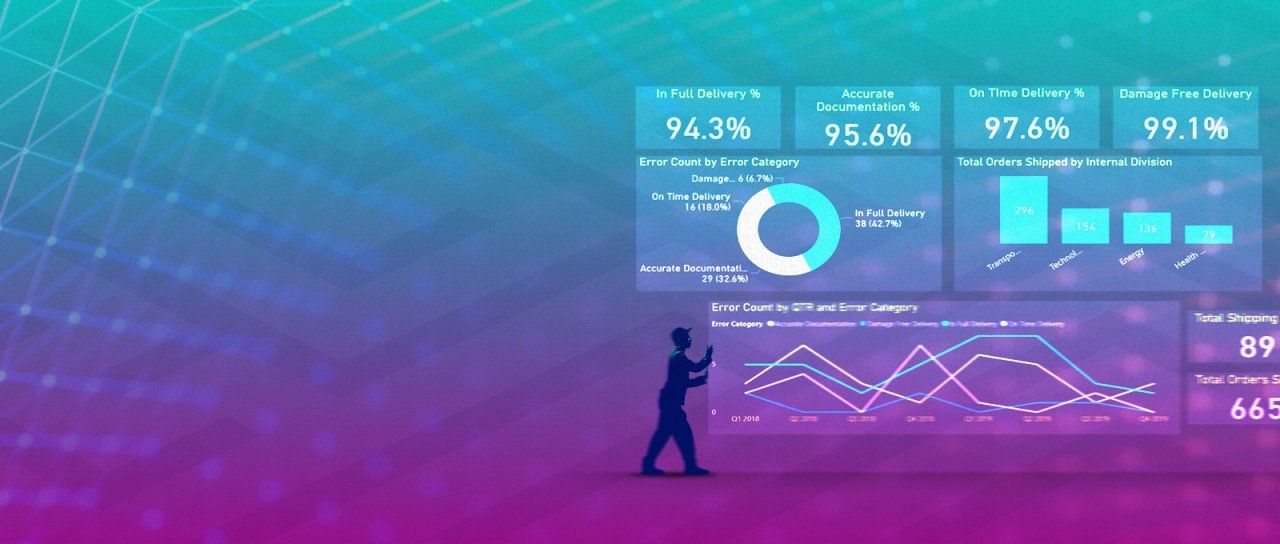How BI Dashboards Improve Business Performance is a critical exploration of how modern organizations leverage data visualization tools to enhance efficiency and decision-making. These dashboards transform raw data into actionable insights, enabling businesses to identify trends, track performance metrics, and ultimately drive growth.
In today’s fast-paced business environment, staying ahead requires more than just intuition; it necessitates informed decisions based on data analysis. BI dashboards play a pivotal role in this process, offering real-time analytics and performance indicators that are essential for strategic planning. They provide a comprehensive view of key metrics, allowing companies to respond swiftly to changes and seize new opportunities.
In today’s fast-paced world, where technology continues to evolve at an unprecedented rate, it is crucial to stay informed about the latest developments and trends. One area that has garnered significant attention over the past few years is artificial intelligence (AI). AI has not only transformed how we interact with technology but has also revolutionized various industries, from healthcare to finance, and even education.To begin with, let’s define what artificial intelligence is.
At its core, AI refers to the simulation of human intelligence processes by machines, particularly computer systems. These processes include learning (the acquisition of information and rules for using it), reasoning (using rules to reach approximate or definite conclusions), and self-correction. In essence, AI enables machines to perform tasks that typically require human intelligence, thereby enhancing efficiency and productivity.AI can be categorized into two main types: narrow AI and general AI.

Narrow AI, also known as weak AI, is designed to perform a specific task. Examples of narrow AI include virtual assistants like Siri and Alexa, recommendation systems on platforms like Netflix and Amazon, and even self-driving cars. On the other hand, general AI, or strong AI, is a theoretical form of AI that possesses the ability to understand, learn, and apply knowledge across a wide range of tasks, much like a human being.
While general AI remains largely in the realm of science fiction, narrow AI has made substantial strides and is now part of our everyday lives.One of the most significant benefits of AI is its ability to process and analyze data at an incredible speed. In today’s data-driven world, organizations collect vast amounts of information daily. However, extracting valuable insights from this data can be a daunting task for humans.
AI algorithms can sift through large datasets, identifying patterns and trends that may not be immediately apparent. This capability empowers businesses to make more informed decisions, optimize operations, and enhance customer experiences.In the healthcare sector, AI is proving to be a game changer. With the ability to analyze medical images, AI can assist radiologists in detecting anomalies such as tumors or fractures more accurately and swiftly.
Additionally, AI-powered systems can help in diagnosing diseases by evaluating patient data, thus enabling more personalized treatment plans. Furthermore, AI is being utilized in drug discovery, significantly reducing the time and cost associated with bringing new medications to market. By automating labor-intensive processes, AI is helping to improve patient outcomes and streamline healthcare delivery.The financial industry is another area where AI is making waves.
From algorithmic trading to risk assessment, AI technologies are reshaping how financial institutions operate. For instance, banks are using machine learning algorithms to detect fraudulent transactions in real-time, thereby protecting customers and minimizing losses. Additionally, AI is being employed to analyze market trends and make predictions, enabling traders to make more strategic investment decisions. As AI continues to evolve, we can expect even more innovative applications within finance, ultimately leading to a more efficient and secure financial ecosystem.Education is yet another field where AI is having a profound impact.
With the rise of online learning platforms, AI is playing a pivotal role in personalizing the educational experience for students. By analyzing individual learning patterns and preferences, AI can tailor content and assessments to meet the specific needs of each learner. This personalized approach not only enhances engagement but also improves educational outcomes. Moreover, AI-powered chatbots are now being employed in educational institutions to provide students with instant support and assistance, creating a more interactive learning environment.Despite its numerous advantages, the rise of AI also raises important ethical questions and concerns.
As machines become more capable of performing tasks traditionally done by humans, there are fears about job displacement and economic inequality. While AI has the potential to automate repetitive and mundane tasks, it also creates new job opportunities in fields such as AI development, data analysis, and machine learning engineering. The key lies in ensuring that the workforce is adequately prepared for this transition through education and retraining programs.Another significant ethical concern surrounding AI is the issue of bias.
AI systems learn from historical data, and if that data reflects existing biases, the AI can inadvertently perpetuate and amplify those biases. This can lead to unfair treatment in areas such as hiring practices, lending decisions, and law enforcement. To mitigate this risk, organizations must prioritize transparency and accountability in their AI systems, ensuring that they are developed and implemented responsibly.In conclusion, artificial intelligence is undoubtedly one of the most transformative technologies of our time.
Its ability to enhance efficiency, improve decision-making, and personalize experiences has far-reaching implications across various industries. However, as we embrace the benefits of AI, it is imperative to address the ethical challenges it presents. By fostering a collaborative approach between technology developers, policymakers, and society at large, we can harness the power of AI for the greater good, paving the way for a future that is not only technologically advanced but also equitable and just.
Questions Often Asked: How BI Dashboards Improve Business Performance
What are BI dashboards?
BI dashboards are visual tools that display key business metrics and data insights in a consolidated manner, allowing for quick analysis and decision-making.
How do BI dashboards enhance decision-making?
They provide real-time data visuals that help identify trends and patterns, enabling managers to make informed decisions quickly.
Can BI dashboards be customized?
Yes, most BI dashboards can be customized to focus on specific metrics and KPIs relevant to an organization’s goals.
What types of data can be displayed on BI dashboards?
BI dashboards can display various types of data, including sales figures, customer insights, financial metrics, and operational performance.
Are BI dashboards suitable for small businesses?
Absolutely! BI dashboards can be scaled and tailored to fit the needs of small businesses, providing them with valuable insights at an affordable cost.




